
Klosters: A Swiss Alpine Haven
Nestled in the Swiss Alps, Klosters is a picturesque village that exudes charm and tranquility. Known for its stunning landscapes, Klosters offers a perfect blend of natural beauty and outdoor adventure. The village's scenic backdrop of snow-capped peaks and lush valleys is a haven for skiers and snowboarders in the winter months. With its well-groomed slopes and modern facilities, it provides a world-class skiing experience for all levels. In the summer, the area transforms into a paradise for hikers, mountain bikers, and nature lovers, with numerous trails that offer breathtaking views of the alps. Klosters is not just about adventure; it is also a place of relaxation and luxury. The village is dotted with charming chalets, cozy hotels, and gourmet restaurants. Visitors can enjoy a stroll through the quaint streets, explore local shops, and savor traditional Swiss cuisine. The serene atmosphere and warm hospitality make it an ideal destination for those seeking a peaceful retreat. Klosters has a rich cultural heritage that is reflected in its architecture and traditions. The village hosts various cultural events and festivals throughout the year, offering a glimpse into the local way of life. From art exhibitions to music concerts, there is always something happening in Klosters. The combination of outdoor activities, luxurious amenities, and cultural experiences makes Klosters a unique and memorable destination for tourists.
Local tips in Klosters
- Visit during the off-peak season for fewer crowds and better rates on accommodations.
- Purchase a regional travel pass for unlimited access to local transportation and discounts on various attractions.
- Try the local specialty, fondue, at one of the traditional Swiss restaurants in the village.
- Book your ski passes and equipment rentals in advance, especially during the winter season.
- Explore the nearby town of Davos, which is easily accessible by train and offers additional attractions and activities.
Klosters: A Swiss Alpine Haven
Nestled in the Swiss Alps, Klosters is a picturesque village that exudes charm and tranquility. Known for its stunning landscapes, Klosters offers a perfect blend of natural beauty and outdoor adventure. The village's scenic backdrop of snow-capped peaks and lush valleys is a haven for skiers and snowboarders in the winter months. With its well-groomed slopes and modern facilities, it provides a world-class skiing experience for all levels. In the summer, the area transforms into a paradise for hikers, mountain bikers, and nature lovers, with numerous trails that offer breathtaking views of the alps. Klosters is not just about adventure; it is also a place of relaxation and luxury. The village is dotted with charming chalets, cozy hotels, and gourmet restaurants. Visitors can enjoy a stroll through the quaint streets, explore local shops, and savor traditional Swiss cuisine. The serene atmosphere and warm hospitality make it an ideal destination for those seeking a peaceful retreat. Klosters has a rich cultural heritage that is reflected in its architecture and traditions. The village hosts various cultural events and festivals throughout the year, offering a glimpse into the local way of life. From art exhibitions to music concerts, there is always something happening in Klosters. The combination of outdoor activities, luxurious amenities, and cultural experiences makes Klosters a unique and memorable destination for tourists.
When is the best time to go to Klosters?
Iconic landmarks you can’t miss
Vereinatunnel Klosters
Discover the Vereinatunnel, an engineering marvel in the Swiss Alps, offering breathtaking views and a unique travel experience connecting Klosters to Engadin.
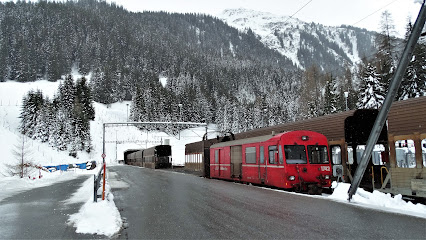
Madrisa Land
Discover Madrisa Land, an enchanting amusement park in the Swiss Alps, where adventure and stunning views await every visitor.
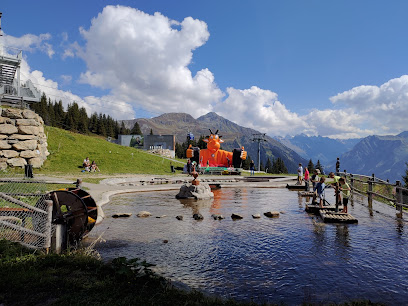
Seven Alpina Boutique Hotel
Immerse yourself in luxury and breathtaking views at Seven Alpina Boutique Hotel in Klosters-Serneus, the ultimate alpine retreat for travelers.
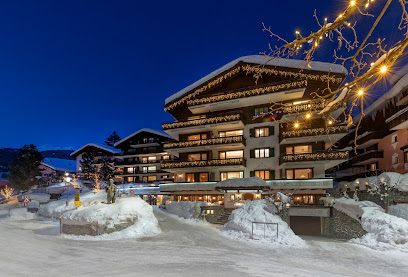
Berghaus Alpenrösli
Experience authentic Swiss cuisine in the breathtaking setting of Klosters-Serneus at Berghaus Alpenrösli, where culinary delights meet stunning alpine views.
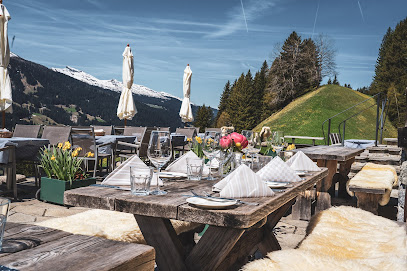
Sunstar Hotel Klosters
Experience unparalleled luxury and breathtaking alpine views at Sunstar Hotel Klosters, your perfect Swiss getaway in the heart of the mountains.

Bergrestaurant Madrisa-Hof
Discover the enchanting Bergrestaurant Madrisa-Hof in Klosters Dorf, where exquisite Western cuisine meets stunning alpine views for an unforgettable dining experience.
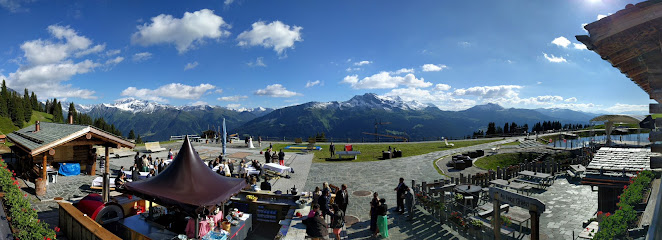
Davos Klosters Skigebiet
Experience the thrill of skiing in Davos Klosters Ski Resort, an idyllic winter paradise with breathtaking slopes and vibrant après-ski culture.
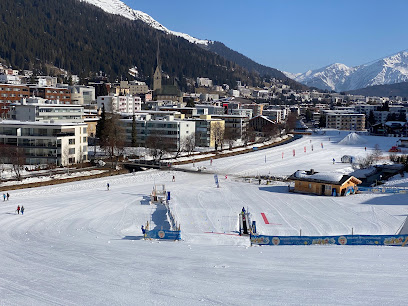
Destination Davos Klosters
Explore Destination Davos Klosters: A Swiss Alpine paradise offering stunning landscapes, thrilling skiing, and rich cultural experiences for every traveler.
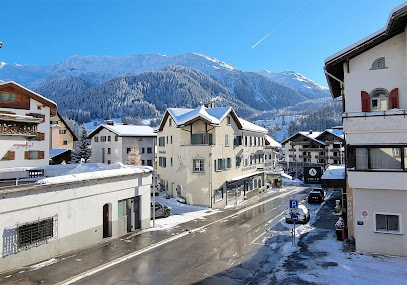
Klosters Platz
Experience the Swiss Alps through Klosters Platz, a picturesque train station connecting you to stunning landscapes and thrilling outdoor adventures.
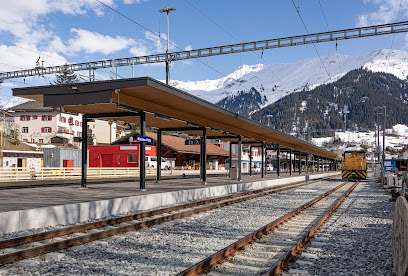
Zwergenweg
Explore Zwergenweg, a charming theme park in Klosters-Serneus, Switzerland, offering enchanting trails, whimsical sculptures, and breathtaking alpine views for family fun.
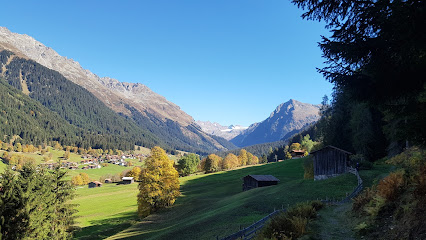
Klosters Platz (Gotschnabahn)
Discover the breathtaking Swiss Alps from Klosters Platz, your gateway to skiing, hiking, and unforgettable alpine adventures.
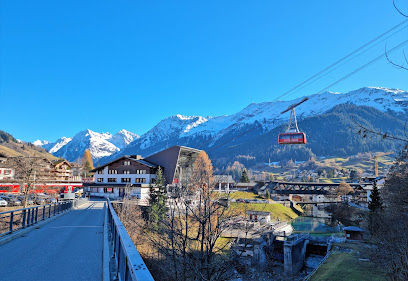
Klosters Dorf
Experience the enchanting charm of Klosters Dorf, a scenic train station and gateway to the Swiss Alps, perfect for adventure and relaxation.
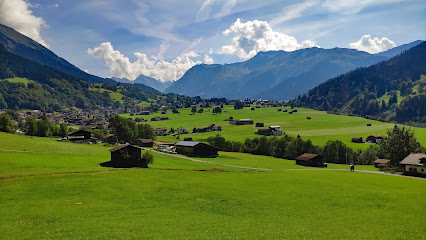
Bärgstall (Gadäwäg: Klosters PUR)
Discover the rich cultural heritage of the Swiss Alps at Bärgstall Museum in Klosters-Serneus, where history and tradition come alive.
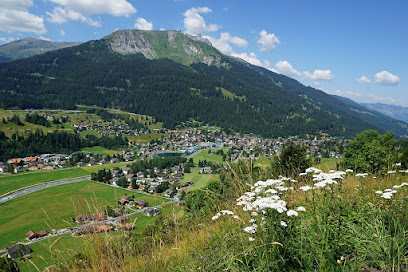
800 Jahre Klosters
Discover the charm of Klosters-Serneus at 800 Jahre Klosters, a venue celebrating local culture and community events in the heart of the Swiss Alps.
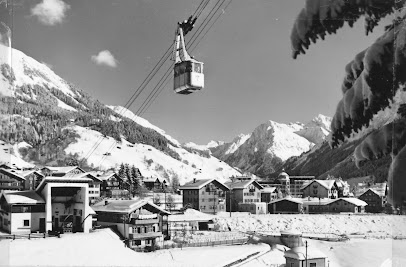
Unmissable attractions to see
Swiss National Park
Explore the breathtaking landscapes and diverse wildlife of Swiss National Park, a premier destination for outdoor enthusiasts and nature lovers in the heart of the Alps.
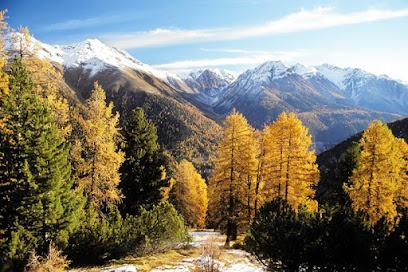
Madrisa
Discover the breathtaking beauty and adventure of Madrisa, a premier hiking and ski resort in the Swiss Alps, perfect for all outdoor enthusiasts.
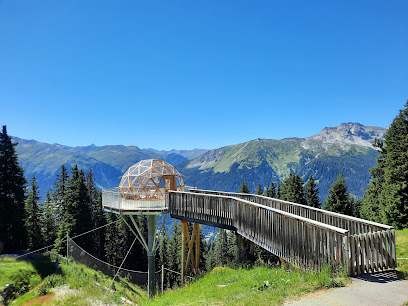
Madrisa Land
Discover Madrisa Land, your ultimate alpine adventure destination in Klosters-Serneus, Switzerland, featuring hiking trails and fun amusement park rides for all ages.
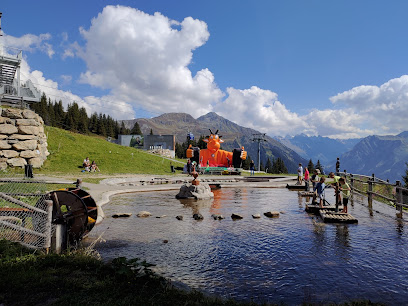
Jakobshorn
Experience the stunning slopes and vibrant culture at Jakobshorn, Davos' premier ski resort, perfect for skiing, dining, and unforgettable mountain views.
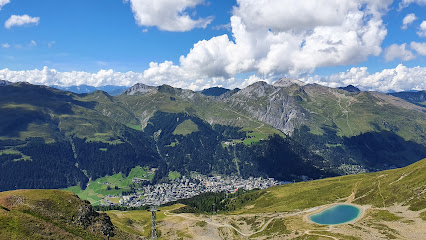
Adventure Park Davos Färich
Experience the thrill of adventure at Adventure Park Davos Färich, where excitement meets the stunning landscape of the Swiss Alps.
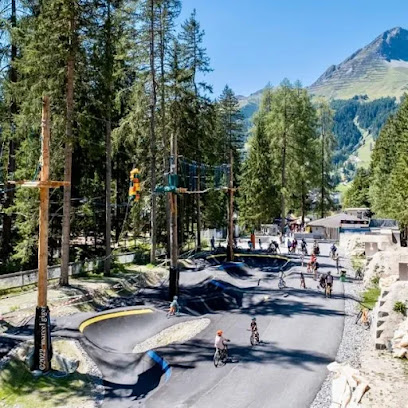
Kirchner Museum Davos
Discover the vibrant world of Ernst Ludwig Kirchner at Kirchner Museum Davos, an artistic gem nestled in the stunning Swiss Alps.
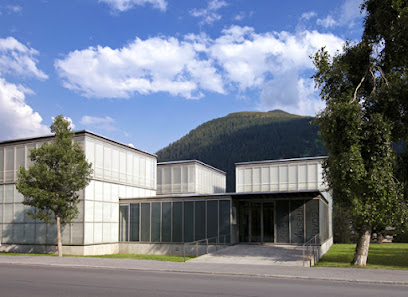
Worldmonument Salginatobelbrücke
Explore the breathtaking Salginatobel Bridge in Schiers, Switzerland, where stunning architecture meets nature's beauty in an unforgettable experience.
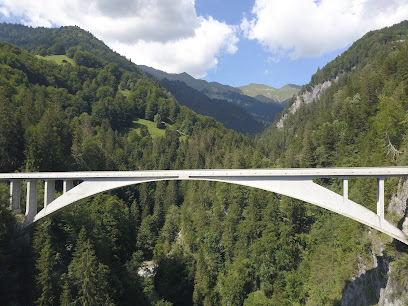
Chamanna Cluozza
Discover Chamanna Cluozza, a serene mountain cabin in the Swiss Alps, perfect for hiking, skiing, and soaking in breathtaking alpine views.

Grand Tour of Switzerland Foto-Spot Davos/Klosters
Discover the stunning landscapes of Davos/Klosters at the Grand Tour of Switzerland Foto-Spot, a photographer's paradise in the Swiss Alps.
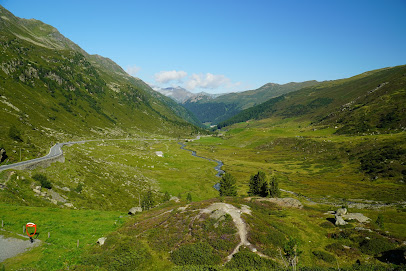
Pontresina Tourist Information
Explore the Swiss Alps with expert guidance from Pontresina Tourist Information, your gateway to adventure and culture in the Engadin Valley.
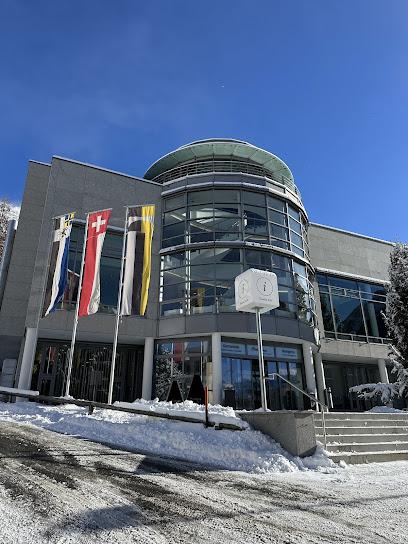
Ducan-Wasserfall
Experience the breathtaking beauty of Ducan-Wasserfall in Davos, a serene escape into nature's stunning alpine landscape.
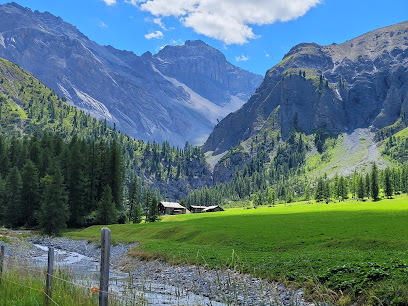
museum nutlihüschi
Explore the rich heritage of Klosters at the Museum Nutlihüschi, a local history museum showcasing the region's cultural tapestry through engaging exhibits.
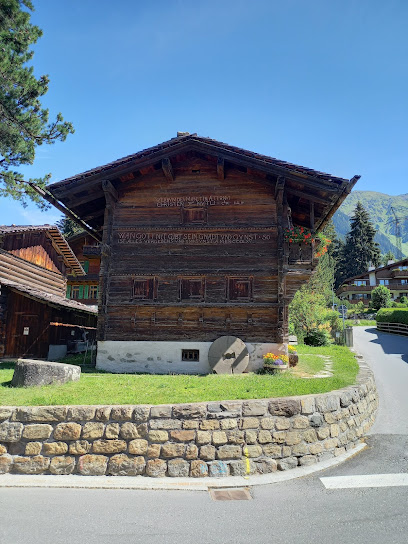
Jöriflüelafurgga
Explore the breathtaking beauty of Jöriflüelafurgga, a premier hiking destination in Davos, Switzerland, perfect for all outdoor enthusiasts.
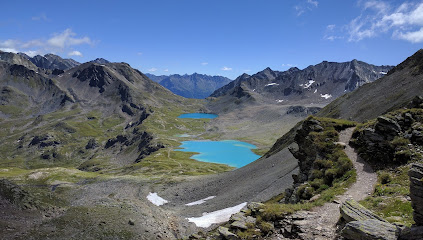
Wanderweg Davosersee
Discover the serene beauty of Wanderweg Davosersee, a stunning hiking area in Davos, Switzerland, where nature and adventure await.
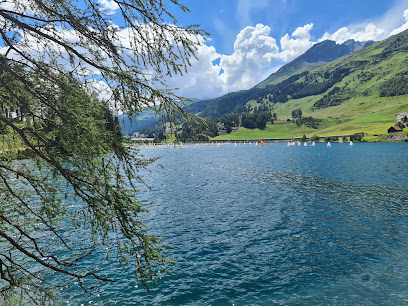
Alp Trupchun
Experience unparalleled natural beauty and tranquility at Alp Trupchun, a serene mountain cabin nestled in the Swiss Alps, perfect for outdoor adventures.

Essential places to dine
Hotel Piz Buin Klosters
Experience luxury dining and serene spa treatments at Hotel Piz Buin Klosters—your alpine escape in Switzerland's breathtaking landscapes.
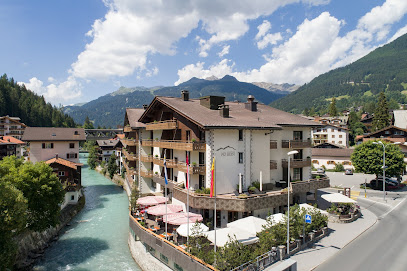
Restaurant Pizzeria Al Capone Klosters
Savor authentic Italian flavors at Restaurant Pizzeria Al Capone in Klosters – where every pizza tells a story amidst stunning alpine views.
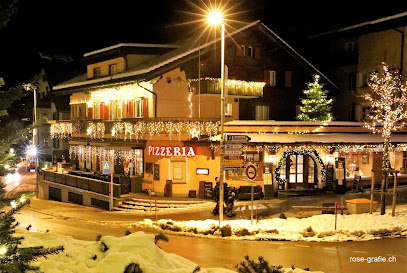
Restaurant Alp Garfiun
Experience authentic Swiss cuisine with stunning alpine views at Restaurant Alp Garfiun in Klosters-Serneus.
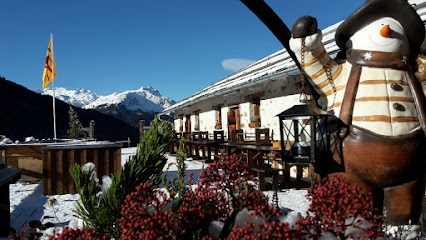
Hotel Sport Klosters
Experience authentic Swiss cuisine at Hotel Sport Klosters while enjoying stunning alpine views and cozy accommodations.
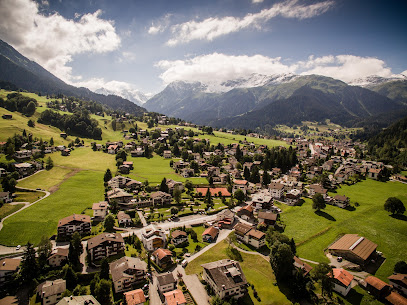
Hotel Wynegg
Discover culinary excellence at Hotel Wynegg in Klosters-Serneus—where gourmet dining meets cozy alpine hospitality amidst stunning landscapes.
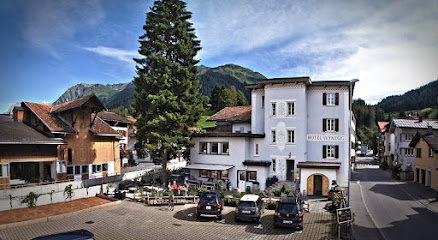
Grüenbödeli GmbH
Discover Grüenbödeli: where authentic Swiss barbecue meets stunning alpine views in Klosters-Serneus.
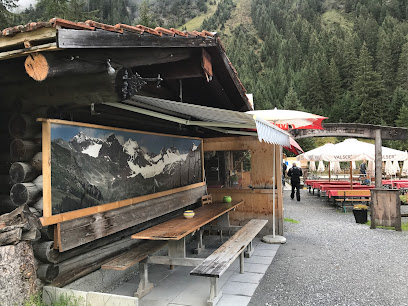
KaffeeKlatsch easy Klosters
Discover KaffeeKlatsch in Klosters - where delightful coffee meets breathtaking mountain views in a cozy atmosphere.
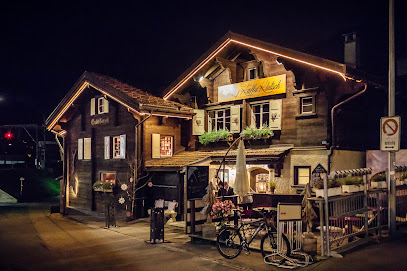
Sonne Restaurant & Fondue Stübli
Experience authentic Swiss cuisine at Sonne Restaurant & Fondue Stübli in Klosters-Serneus, where tradition meets breathtaking alpine views.
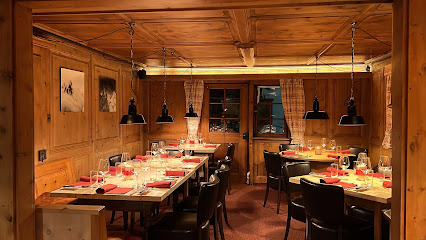
Hotel-Restaurant Steinbock
Discover culinary excellence and cozy accommodations at Hotel-Restaurant Steinbock in beautiful Klosters-Serneus.
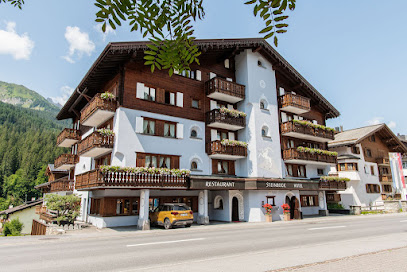
Berghaus Alpenrösli
Experience authentic Swiss cuisine in a cozy alpine setting at Berghaus Alpenrösli—where culinary excellence meets breathtaking mountain views.
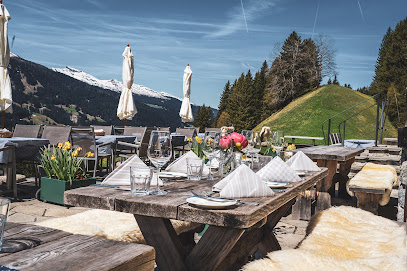
Graströchni Klosters
Discover Graströchni Klosters: A Swiss bar and restaurant offering authentic cuisine in a cozy alpine setting.
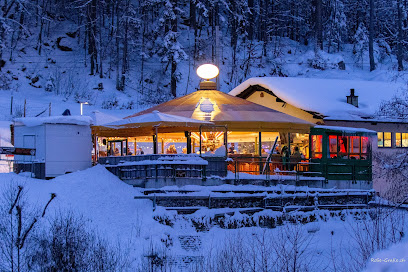
Gasthaus Höhwald
Discover exquisite Swiss cuisine amidst breathtaking alpine views at Gasthaus Höhwald in Klosters-Serneus.
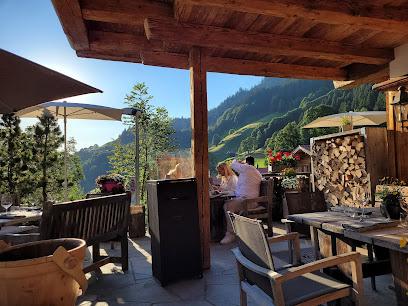
Pizzeria Madrisa-Mia
Discover authentic Italian cuisine at Pizzeria Madrisa-Mia - where every pizza tells a story amidst breathtaking Swiss landscapes.
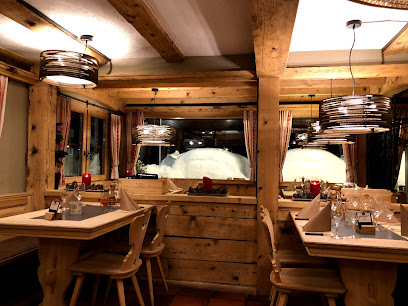
Madrisa-Alp
Discover Madrisa-Alp: A captivating dining experience surrounded by breathtaking alpine beauty and authentic Swiss cuisine.
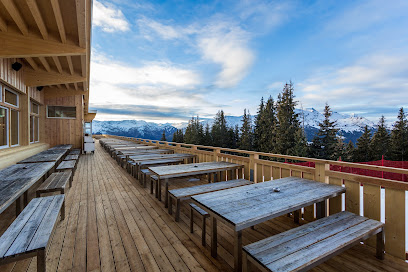
Berghaus Erika, Michael Kern
Experience authentic Swiss cuisine at Berghaus Erika in Klosters-Serneus, surrounded by breathtaking alpine scenery and warm hospitality.

Markets, malls and hidden boutiques
Coop Supermarkt Klosters-Platz
Experience local Swiss culture at Coop Supermarkt Klosters-Platz, your go-to destination for fresh produce and authentic souvenirs in Klosters.
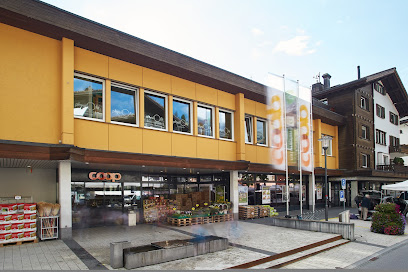
ANDRIST Sport & Fashion
Discover top-notch sporting goods, ski rentals, and expert advice at ANDRIST Sport & Fashion in the heart of Klosters, perfect for outdoor enthusiasts.
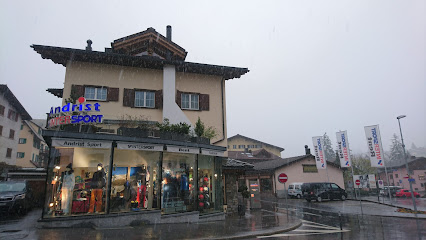
Gotschna Sport Klosters
Explore Gotschna Sport Klosters for top-notch sporting gear and expert advice, ensuring an unforgettable alpine adventure in Switzerland.
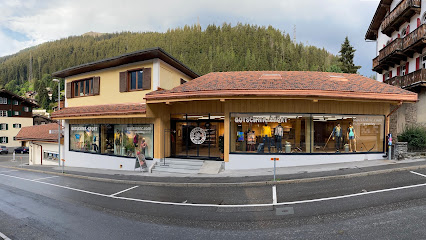
Spar Supermarket
Discover fresh local produce and Swiss specialties at Spar Supermarket in Klosters-Serneus, your go-to grocery store for essentials and treats.
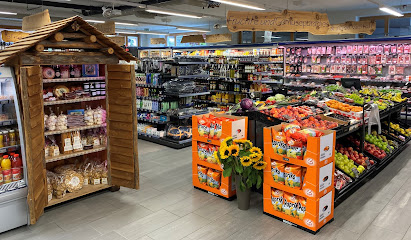
Bardill Sport Klosters
Discover Bardill Sport Klosters, your ultimate destination for sporting goods, ski rentals, and outdoor gear in the heart of the Swiss Alps.
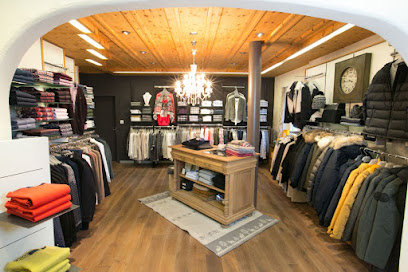
Kreativ-Kiste Picket Point
Explore Kreativ-Kiste Picket Point, a unique gift shop offering handcrafted treasures and local crafts for an unforgettable souvenir experience.
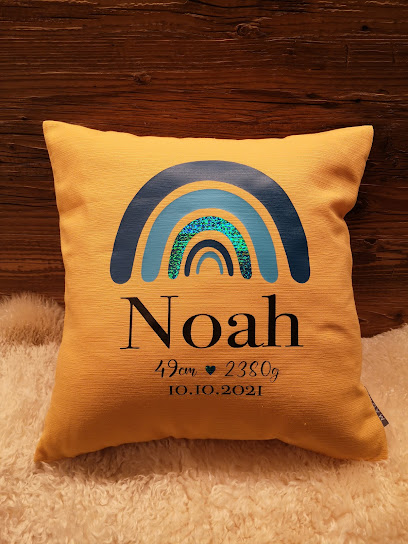
Maissen Klosters AG
Explore the elegance of Swiss craftsmanship at Maissen Klosters AG, the premier watch store in Klosters, offering exquisite timepieces for every taste.
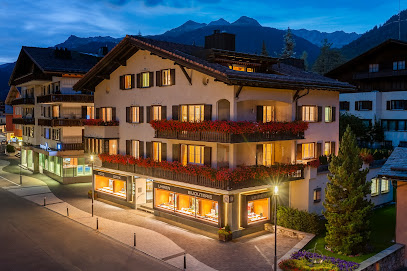
room concept store & café Klosters
Experience the charm of Klosters at Room Concept Store & Café, where shopping meets relaxation in a picturesque alpine setting.
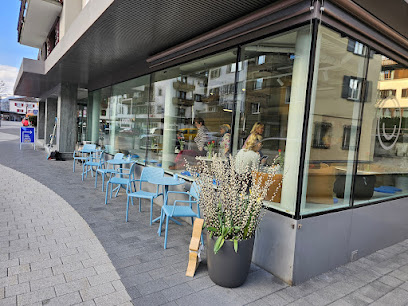
ANDRIST Bike & Lifestyle
Explore ANDRIST Bike & Lifestyle in Klosters-Serneus for top-quality bicycles, sportswear, and expert repair services in a vibrant cycling community.
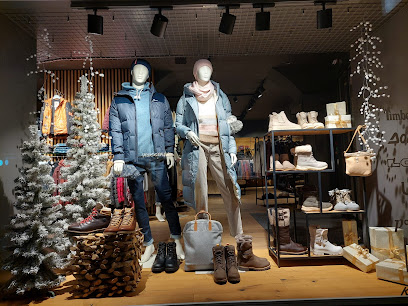
Rössli Holz-Spielwaren und Antiquitäten AG
Explore Rössli Holz-Spielwaren und Antiquitäten AG, a charming antique store in Klosters-Serneus, showcasing exquisite wooden toys and unique collectibles.
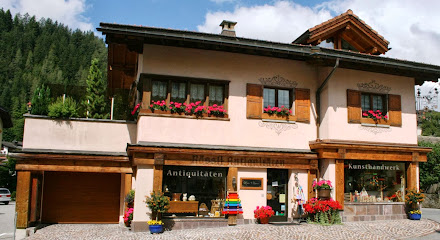
Schneider's Railway Shop
Experience the heart of Swiss baking at Schneider's Railway Shop in Klosters-Serneus, where every bite tells a story of tradition and taste.
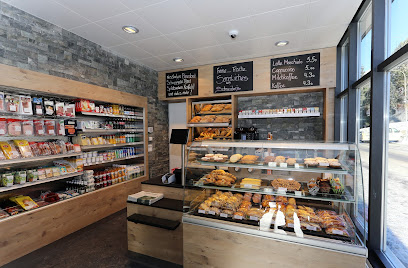
Come In
Explore Come In, the enchanting florist in Klosters-Serneus, offering exquisite blooms and unforgettable floral arrangements that capture the spirit of the Alps.
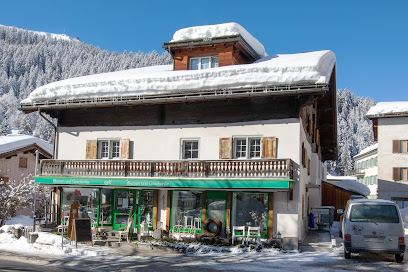
Roniger Blumengeschäft
Experience the beauty of Swiss floral artistry and unique gifts at Roniger Blumengeschäft, a charming florist and gift shop in Klosters-Serneus.
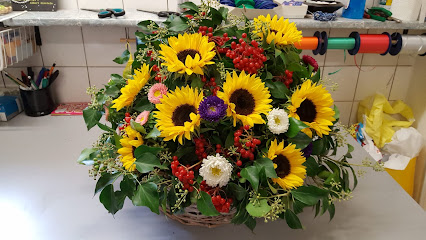
AHEAD FASHION
Discover stylish women's clothing at AHEAD FASHION in Klosters-Serneus, blending alpine charm with contemporary fashion for the modern traveler.
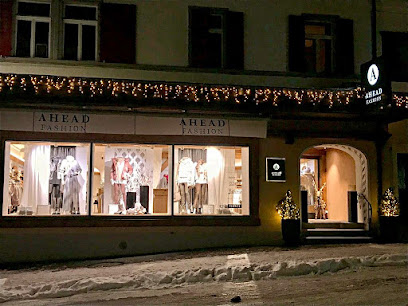
Pine Cone GmbH
Explore the enchanting Pine Cone GmbH, a home goods store in Klosters-Serneus, offering authentic Swiss craftsmanship and unique decor items.
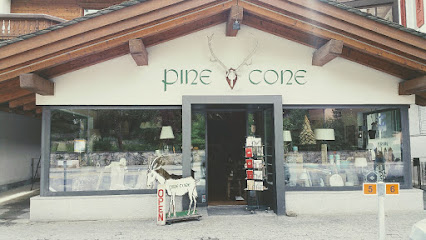
Essential bars & hidden hideouts
Hotel Piz Buin Klosters
Discover the ultimate alpine escape at Hotel Piz Buin Klosters, where luxury meets adventure in the stunning Swiss Alps.
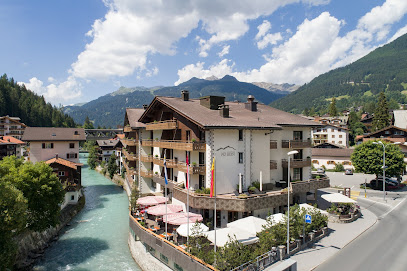
Restaurant Pizzeria Al Capone Klosters
Savor the essence of Italy at Restaurant Pizzeria Al Capone Klosters, where delicious pizzas meet a vibrant bar atmosphere.
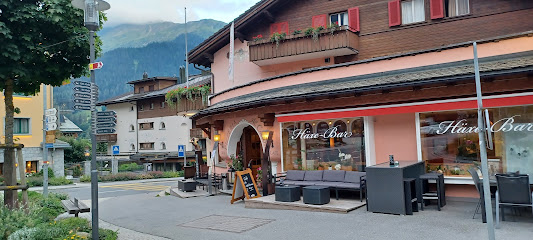
Hotel Sport Klosters
Experience Swiss hospitality at its finest in Klosters-Serneus with Hotel Sport Klosters, where comfort meets exquisite dining amidst breathtaking alpine views.
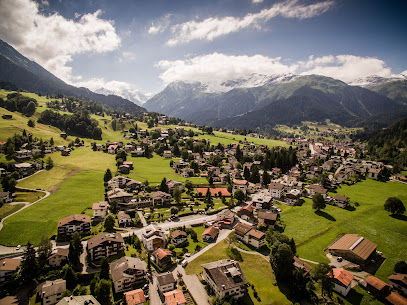
Hotel Wynegg
Discover the charm of Hotel Wynegg in Klosters-Serneus, where luxury meets adventure in the heart of the Swiss Alps.
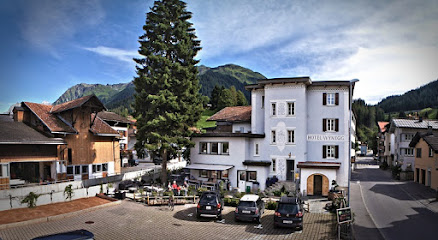
Grüenbödeli GmbH
Experience the best of Swiss barbecue at Grüenbödeli GmbH in Klosters-Serneus, where flavor meets breathtaking alpine beauty.
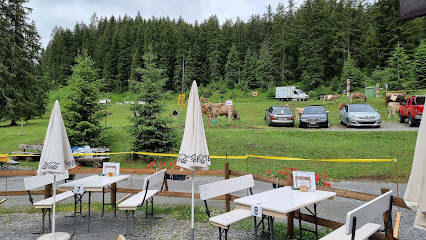
KaffeeKlatsch easy Klosters
Discover the charm of KaffeeKlatsch Easy Klosters, where delicious coffee and Swiss hospitality meet in a cozy café setting.
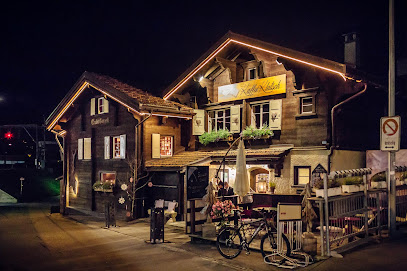
Hotel-Restaurant Steinbock
Discover the charm of Hotel-Restaurant Steinbock in Klosters-Serneus, a perfect blend of cozy accommodations and exquisite Swiss cuisine.
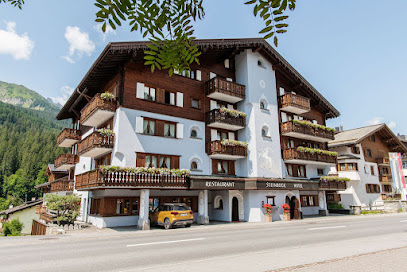
Mountain's Akt Bar
Discover the inviting atmosphere of Mountain's Akt Bar in Davos, where great food and refreshing drinks await in a stunning alpine setting.
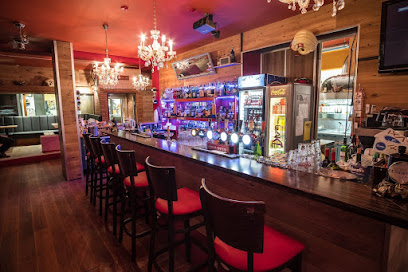
Graströchni Klosters
Discover the heart of Swiss cuisine at Graströchni Klosters, a cozy bar and restaurant offering authentic dishes in a stunning Alpine setting.
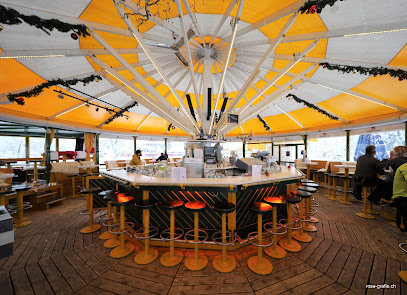
Gasthaus Höhwald
Experience the essence of Swiss cuisine at Gasthaus Höhwald, where Alpine views meet culinary excellence in Klosters-Serneus.
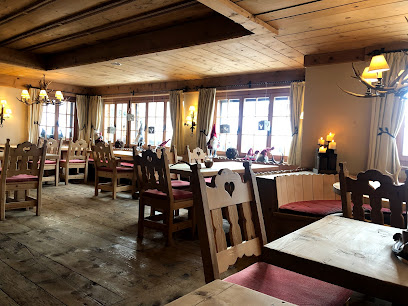
Society Burger & More
Discover culinary bliss at Society Burger & More, where delicious gourmet hamburgers meet the stunning beauty of Klosters-Serneus.
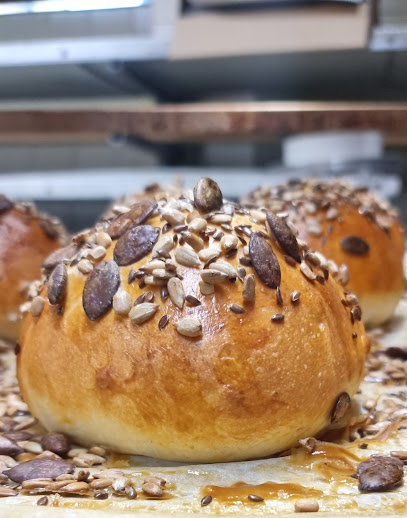
Hotel & Restaurant Chesa Grischuna
Discover the perfect blend of comfort, fine dining, and leisure at Hotel & Restaurant Chesa Grischuna in Klosters-Serneus, Switzerland.

BÄR'S Café Bistro Lounge
Experience the best of Klosters-Serneus at BÄR'S Café Bistro Lounge, where local flavors meet a cozy atmosphere for unforgettable dining.
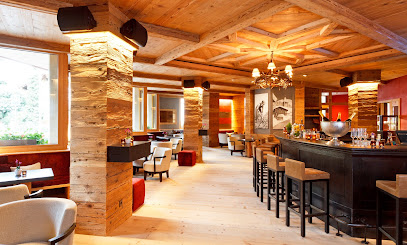
Schiferstall
Experience the flavors of Klosters-Serneus at Schiferstall, where stunning mountain views meet delightful local cuisine in a cozy setting.
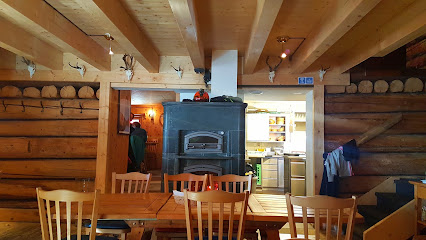
Kanonenbar
Experience the cozy atmosphere and delicious local cuisine at Kanonenbar, a top gastropub in the heart of Klosters-Serneus, Switzerland.
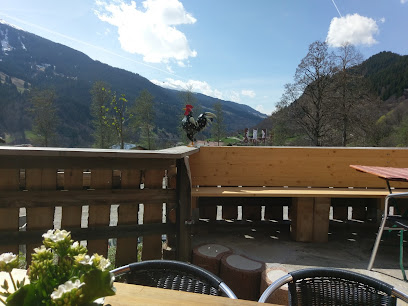
Local Phrases about Klosters
-
- HelloHallo
[ha-lo] - GoodbyeAuf Wiedersehen
[owf vee-der-zay-en] - YesJa
[ya] - NoNein
[nine] - Please/You're welcomeBitte
[bit-te] - Thank youDanke
[dahn-keh] - Excuse me/SorryEntschuldigung
[ent-shool-di-gung] - How are you?Wie geht es Ihnen?
[vee gate es een-en] - Fine. And you?Gut. Und Ihnen?
[goot oont een-en] - Do you speak English?Sprechen Sie Englisch?
[shpre-khen zee eng-leesh] - I don't understandIch verstehe nicht
[ikh fer-shtay-eh neekt]
- HelloHallo
-
- I'd like to see the menu, pleaseIch möchte bitte die Speisekarte sehen
[ikh merkh-teh bit-te dee shpy-suh-kar-teh zay-en] - I don't eat meatIch esse kein Fleisch
[ikh es-se kine flysh] - Cheers!Prost!
[prohst] - I would like to pay, pleaseIch möchte bitte bezahlen
[ikh merkh-teh bit-te beh-tzah-len]
- I'd like to see the menu, pleaseIch möchte bitte die Speisekarte sehen
-
- Help!Hilfe!
[heel-feh] - Go away!Gehen Sie weg!
[geh-en zee vehg] - Call the Police!Rufen Sie die Polizei!
[roo-fen zee dee po-lee-tsy] - Call a doctor!Rufen Sie einen Arzt!
[roo-fen zee i-nen ahrtz] - I'm lostIch habe mich verirrt
[ikh hah-beh meekh feh-reert] - I'm illIch bin krank
[ikh been krahnk]
- Help!Hilfe!
-
- I'd like to buy...Ich möchte ... kaufen
[ikh merkh-teh ... kow-fen] - I'm just lookingIch schaue nur
[ikh shoo-eh noor] - How much is it?Wie viel kostet es?
[vee feel koh-stet es] - That's too expensiveDas ist zu teuer
[dahs eest tsoy toy-er] - Can you lower the price?Können Sie den Preis senken?
[kern-en zee den prise zehn-ken]
- I'd like to buy...Ich möchte ... kaufen
-
- What time is it?Wie spät ist es?
[vee shpet eest es] - It's one o'clockEs ist ein Uhr
[es eest iyn oor] - Half past (10)Halb (zehn)
[hahlp (tsayn)] - MorningMorgen
[mor-gen] - AfternoonNachmittag
[nahk-mit-tahk] - EveningAbend
[ah-bent] - YesterdayGestern
[geh-stern] - TodayHeute
[hoy-teh] - TomorrowMorgen
[mor-gen] - 1Eins
[eyns] - 2Zwei
[tsvay] - 3Drei
[drey] - 4Vier
[feer] - 5Fünf
[foonf] - 6Sechs
[zeks] - 7Sieben
[zee-ben] - 8Acht
[ahkt] - 9Neun
[noyn] - 10Zehn
[tsayn]
- What time is it?Wie spät ist es?
-
- Where's a/the...?Wo ist ein/der...?
[vo eest iyn/dehr] - What's the address?Was ist die Adresse?
[vas eest dee ah-dreh-suh] - Can you show me (on the map)?Können Sie mir zeigen (auf der Karte)?
[kern-en zee meer tsay-gen (owf dehr kar-teh)] - When's the next (bus)?Wann kommt der nächste (Bus)?
[vahn kohmt dehr nekhs-teh (boos)] - A ticket (to ....)Eine Fahrkarte (nach ....)
[i-nuh fahr-kahr-teh (nahkh ....)]
- Where's a/the...?Wo ist ein/der...?
History of Klosters
-
Klosters, nestled in the scenic Prättigau Valley of Switzerland, traces its origins back to the 13th century. The village's name is derived from the Latin word 'claustrum,' meaning cloister, indicative of the monastic settlements that played a pivotal role in the area's early development. These settlements were instrumental in cultivating the land and establishing the foundations for the community that would grow into the Klosters we know today.
-
In the 14th century, the Walser people, originally from the Valais region, migrated to Klosters. They brought with them their distinct language, culture, and agricultural practices, significantly influencing the development of the village. The Walser's skills in alpine farming and their resilient spirit helped Klosters thrive despite the challenging mountainous terrain.
-
The 16th century Reformation left a profound mark on Klosters. The area, influenced by the spread of Protestantism, experienced significant religious and social changes. The shift from Catholicism to Protestantism was not without conflict, but it eventually led to a more unified and resilient community that adapted to the sweeping changes of the era.
-
The late 19th and early 20th centuries saw Klosters transform into a prominent winter sports destination. The construction of the Rhätische Bahn railway in 1889 made the area more accessible to tourists, spurring the development of hotels and ski resorts. Klosters became renowned for its picturesque landscapes and excellent skiing conditions, attracting visitors from around the world, including notable figures such as members of the British royal family.
-
During World War II, Klosters, like much of Switzerland, maintained a stance of neutrality. The village served as a sanctuary for many seeking refuge from the conflict. In the post-war period, Klosters experienced a boom in tourism, with the construction of modern amenities and infrastructure to accommodate the growing influx of visitors. This era marked the beginning of Klosters' reputation as a luxury ski resort, beloved by celebrities and the global elite.
-
Klosters is rich in cultural heritage, with traditions that have been preserved through centuries. The village hosts various festivals and events that celebrate its history, such as the annual 'Chalandamarz' festival, which marks the end of winter and the beginning of spring. Traditional music, dance, and cuisine are integral to these celebrations, offering visitors a glimpse into the enduring cultural tapestry of Klosters.
-
Today, Klosters seamlessly blends its historical charm with modern luxury. The village continues to be a premier destination for winter sports enthusiasts, while also offering a range of activities year-round, from hiking and mountain biking to cultural tours. Despite its popularity as a high-end resort, Klosters has managed to retain its quaint alpine village atmosphere, making it a unique and cherished destination.
Klosters Essentials
-
Klosters is located in the Graubünden canton of Switzerland. The nearest major airport is Zurich Airport (ZRH), approximately 150 kilometers away. From Zurich, you can take a direct train to Landquart, and then transfer to another train heading to Klosters. The journey takes around 2 to 2.5 hours. Alternatively, you can rent a car at Zurich Airport and drive to Klosters, which takes about 2 hours depending on traffic and weather conditions.
-
Klosters is a compact village, and many attractions are within walking distance. The local bus service is efficient and connects Klosters with nearby villages and ski resorts. For more flexibility, renting a car is an option, but parking can be limited in peak tourist seasons. Taxis are available but can be expensive. For a unique experience, take the Gotschna cable car up to the ski areas or for hiking in the summer.
-
The official currency in Switzerland is the Swiss Franc (CHF). Credit and debit cards are widely accepted in hotels, restaurants, and shops, but it's advisable to carry some cash for smaller establishments and rural areas. ATMs are available in Klosters for cash withdrawals. Some places may also accept Euros, but the exchange rate may not be favorable.
-
Klosters is generally a very safe destination for tourists. Violent crime is rare, but petty theft can occur, especially in crowded areas. Always keep an eye on your belongings and avoid displaying valuable items. There are no specific high-crime areas targeting tourists, but it's always wise to stay vigilant and aware of your surroundings, particularly in transport hubs and busy tourist spots.
-
In case of emergency, dial 112 for immediate assistance. The local police station and medical facilities are available in Klosters. It is recommended to have travel insurance that covers medical emergencies. For minor health issues, there are pharmacies in the village where you can purchase over-the-counter medications. The nearest hospital is in Davos, approximately 12 kilometers away.
-
Fashion: Do dress in layers, especially in winter, as temperatures can fluctuate. Avoid overly casual clothing in fine dining establishments. Religion: Do respect local customs and traditions. Switzerland is predominantly Christian, but there is a diverse religious presence. Public Transport: Do be punctual and have a valid ticket before boarding. Don't speak loudly or disturb others on public transport. Greetings: Do greet people with a friendly 'Grüezi' (hello in Swiss German). A handshake is common in formal settings. Eating & Drinking: Do try local delicacies like fondue and rösti. Don’t rush through meals; dining is a leisurely activity in Switzerland.
-
To experience Klosters like a local, visit the weekly farmers' market where you can buy fresh produce and local cheeses. Engage with locals, as they are generally friendly and willing to share stories about the area. Don't miss the traditional Swiss festivals held throughout the year, such as Fasnacht (Carnival) and the Alpabzug (cattle descent). For a unique experience, take a scenic train ride on the Rhaetian Railway, a UNESCO World Heritage Site, offering breathtaking views of the Swiss Alps.
Trending Landmarks in Klosters
-
Vereinatunnel Klosters
-
Madrisa Land
-
Seven Alpina Boutique Hotel
-
Berghaus Alpenrösli
-
Sunstar Hotel Klosters
-
Bergrestaurant Madrisa-Hof
-
Davos Klosters Skigebiet
-
Destination Davos Klosters
-
Klosters Platz
-
Zwergenweg
-
Klosters Platz (Gotschnabahn)
-
Klosters Dorf
-
Bärgstall (Gadäwäg: Klosters PUR)
-
800 Jahre Klosters
Nearby Cities to Klosters
-
Things To Do in Arosa
-
Things To Do in Balzers
-
Things To Do in Triesenberg
-
Things To Do in Vaduz
-
Things To Do in St. Anton am Arlberg
-
Things To Do in St. Moritz
-
Things To Do in Schaan
-
Things To Do in Eschen
-
Things To Do in Mauren
-
Things To Do in Gamprin
-
Things To Do in Schellenberg
-
Things To Do in Ruggell
-
Things To Do in Dornbirn
-
Things To Do in Bregenz
-
Things To Do in Locarno










